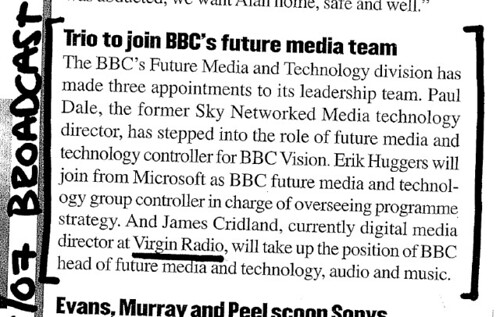From Technology Review…
The world of Second Life is divided into thousands of individual regions, or “sims,” each 65,536 square meters in area (about 16 acres). Linden Lab’s data facilities include more than 20,000 servers, each running one to four sims. The simulation software controls everything going on in its sim, from rendering the terrain and the 3-D models that make up the environment to animating members’ avatars, retrieving their inventories, performing searches, sending instant messages to members in other sims, and communicating with storage databases. If an avatar crosses from one sim into another, every bit of information about that avatar must be handed over to the new sim. The more sims Linden adds to accommodate new members, the more communication goes on between sims, and the greater the burden on each server and on the “backbone” lines connecting them.
“I don’t believe [this architecture] is scalable, at least not to the sizes I want to see it scale to,” said Zero Linden, a “studio director,” or software development manager, at Linden Lab, at a smaller meeting on May 2. (Linden Lab identifies most of its employees only by their in-world names, which always include the surname “Linden.”) But there are “major architectural changes underfoot,” he says, designed to reduce the need for constant connectivity between servers…





